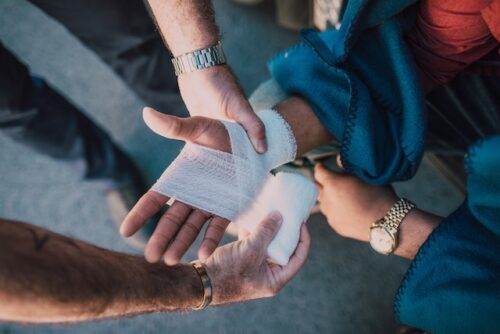
If you’ve recently sustained an injury at work, you may wonder who will cover your medical bills. Please continue reading and reach out to a seasoned Essex County personal injury attorney from our firm to learn more about how we can help you get the compensation you deserve and need to heal. Here are some of the questions you may have:
Who will pay my medical bills after a work injury?
In New Jersey, most people injured at the workplace are entitled to compensation from their employer’s workers’ compensation insurance carrier. An injury does not have to be disastrous in order to designate you to benefits. It is always advisable to seek out the assistance of an experienced New Jersey work injury lawyer. This will greatly help you through the claim process and maximize the compensation you may receive.
How can an accident lawyer help me recover compensation?
You want to obtain fair compensation and our team of lawyers is committed to helping you. We have spent years successfully handling assorted and complicated cases. When addressing important proceedings, these cases require expertise and knowledge. Our attorneys can ask crucial questions such as:
- Were all safety precautions taken?
- Was the work equipment checked for safety issues?
- Were all necessary procedures in place regarding equipment?
- Was all protocol followed?
- Were any prior safety issues vetted before the time of the accident?
What injuries may qualify for compensation?
You may be wondering what types of injuries qualify for a worker’s compensation claim. It does not have to be catastrophic in order to entitle you to benefits. Some examples of workplace injuries are as follows:
- Neck and Back injuries and herniated disks including pre-existing conditions
- Head injuries, neck injuries, and spinal cord injuries
- Torn ligaments
- Broken bones and fractures
- Knee injuries
- Shoulder injuries
- Rotator cuff damage
- Miscellaneous orthopedic injuries
- Complex regional pain syndrome
- Asbestos exposure
- Exposure to other toxic materials, such as chemicals and mold
- Occupational diseases, such as cancer and heart disease
- Car accidents on the job
- Construction site accidents
Two parties that are involved in the workplace and could possibly be involved in workplace accidents are employees and employers. But, another individual known as a third party may also be involved in the accident. When a third party is involved in an accident on the job, they may be held liable for the injuries that an employee incurred. The employee has the opportunity to file a lawsuit against the third party if they wish to do so. In the meantime, they are able to collect workers’ compensation. However, if they win the lawsuit against the third party, they may have to pay back the workers’ compensation that they previously received.
